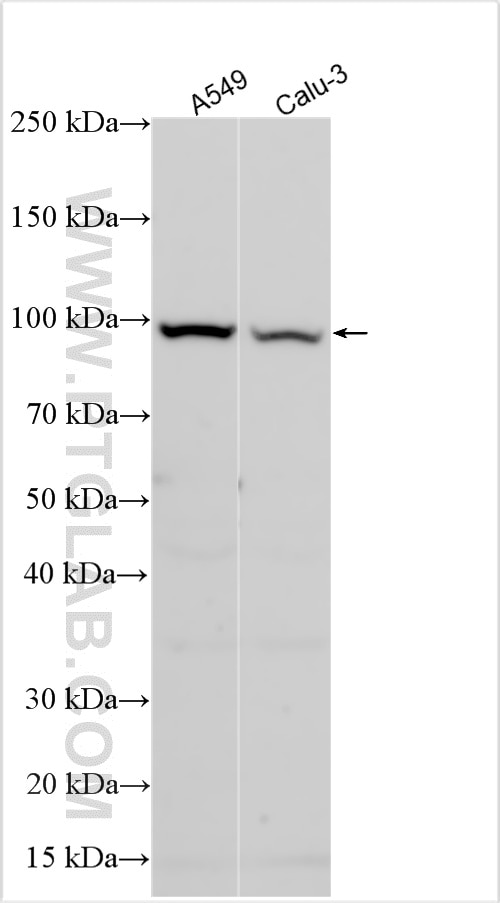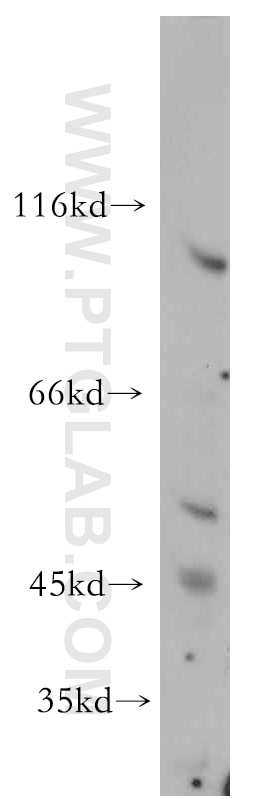SLITRK6 Polyklonaler Antikörper
SLITRK6 Polyklonal Antikörper für WB, ELISA
Wirt / Isotyp
Kaninchen / IgG
Getestete Reaktivität
human, Maus, Ratte
Anwendung
WB, ELISA
Konjugation
Unkonjugiert
Kat-Nr. : 21150-1-AP
Synonyme
Geprüfte Anwendungen
| Erfolgreiche Detektion in WB | A549-Zellen, Mauslungengewebe |
Empfohlene Verdünnung
| Anwendung | Verdünnung |
|---|---|
| Western Blot (WB) | WB : 1:500-1:1000 |
| It is recommended that this reagent should be titrated in each testing system to obtain optimal results. | |
| Sample-dependent, check data in validation data gallery | |
Produktinformation
21150-1-AP bindet in WB, ELISA SLITRK6 und zeigt Reaktivität mit human, Maus, Ratten
| Getestete Reaktivität | human, Maus, Ratte |
| Wirt / Isotyp | Kaninchen / IgG |
| Klonalität | Polyklonal |
| Typ | Antikörper |
| Immunogen | SLITRK6 fusion protein Ag15701 |
| Vollständiger Name | SLIT and NTRK-like family, member 6 |
| Berechnetes Molekulargewicht | 841 aa, 95 kDa |
| Beobachtetes Molekulargewicht | 95-100 kDa |
| GenBank-Zugangsnummer | BC101070 |
| Gene symbol | SLITRK6 |
| Gene ID (NCBI) | 84189 |
| Konjugation | Unkonjugiert |
| Form | Liquid |
| Reinigungsmethode | Antigen-Affinitätsreinigung |
| Lagerungspuffer | PBS with 0.02% sodium azide and 50% glycerol |
| Lagerungsbedingungen | Bei -20°C lagern. Nach dem Versand ein Jahr lang stabil Aliquotieren ist bei -20oC Lagerung nicht notwendig. 20ul Größen enthalten 0,1% BSA. |
Hintergrundinformationen
SLITRK6 is a member of the SLITRK family. Members of this family are integral membrane proteins that are characterized by two N-terminal leucine-rich repeat (LRR) domains and a C-terminal region that shares homology with trk neurotrophin receptors. This protein functions as a regulator of neurite outgrowth required for normal hearing and vision. Mutations in SLITRK6 gene are a cause of myopia and deafness.
Protokolle
| PRODUKTSPEZIFISCHE PROTOKOLLE | |
|---|---|
| WB protocol for SLITRK6 antibody 21150-1-AP | Protokoll herunterladen |
| STANDARD-PROTOKOLLE | |
|---|---|
| Klicken Sie hier, um unsere Standardprotokolle anzuzeigen |



